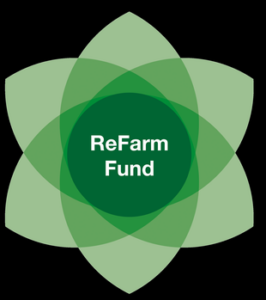A new study by ReFarm Fund, who provide finance & expertise to de-risk transition to regenerative & renewable approaches to make farming environmentally positive and more profitable, has highlighted that UK Farmers want to establish more sustainable practices.
The report found that 52% of UK farmers interviewed stated they want to introduce techniques that minimise soil disturbance, and h 46% plan to maintain living roots all year round. A further 43% expressed an interest in integrating livestock into rotation.
Four out of ten (39%)% of farmers want to keep the soil covered and build up organic matter to feed it and 38% want to maximise species diversity. This aligns well with the Environment Act 2021 and DEFRA’s targets to halt the decline in species populations by 2030.
Questions of investment
On questions of investment, if farmers had access to long term finance, 48% say they would consider investing in and implementing in Renewable Wind & Solar (energy), 37 would pursue carbon measurement & certification (carbon credits); 23% Biomass heat & power generation and 22% Ground source / air source heat pumps.
 The research amongst 100 UK farmers was undertaken in January 2023 by ReFarm Fund, a new AgriFintec which provides finance & expertise to de-risk transition to regenerative & renewable approaches, through a finance and land management platform which quantifies progress & certifies environmental impact.
The research amongst 100 UK farmers was undertaken in January 2023 by ReFarm Fund, a new AgriFintec which provides finance & expertise to de-risk transition to regenerative & renewable approaches, through a finance and land management platform which quantifies progress & certifies environmental impact.
ReFarm Fund Founder Omaid Hiwaizi said: “We all need farming to be sustainable to guarantee food security – but at the moment it’s neither environmentally or financially sustainable. The impact on the environment is well documented – animal farming in particular contributes 11% of UK greenhouse gases (DEFRA Agri-climate report 2022) and our research tells us that 38% of farmers have considered leaving the industry due to financial and physical strains. ReFarm Fund has been created to help solve these issues by accelerating the rate at which farmers move towards environmentally positive and more profitable farming, with the support of transition capital, expertise and other services.”




